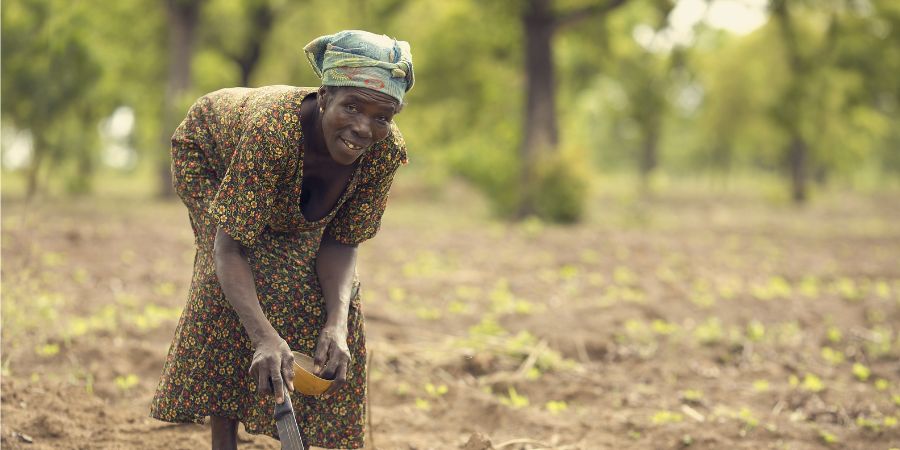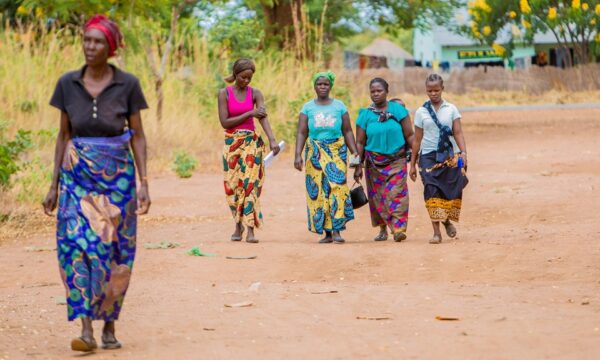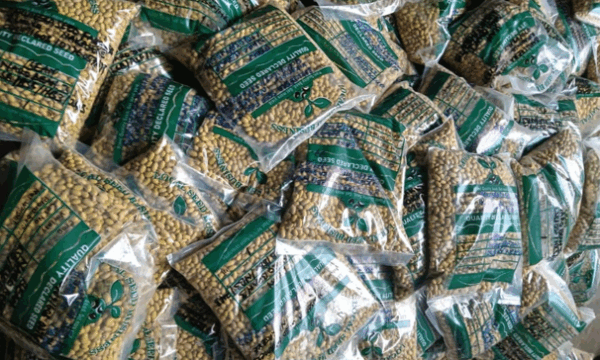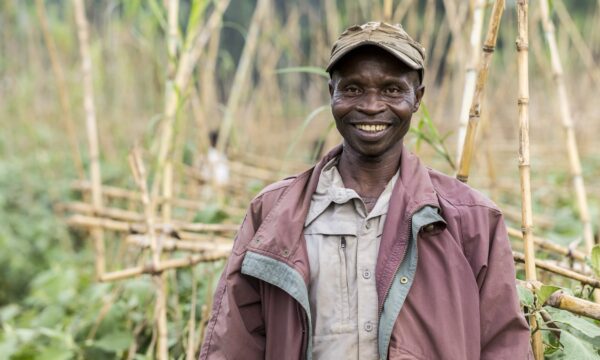Agricultural advisory services can benefit farmers in low- and middle-income countries. They can help farmers to learn new techniques, increase their crop yields and improve their livelihoods. They can even deliver advice about global challenges like climate change.

In many countries, however, women farmers find it difficult to access agricultural advisory services. Many women farmers do not own land and are usually expected to stay at home and not attend trainings including those offered by agricultural advisory service providers. Given their socio-cultural circumstances, women can be overlooked for essential farming support services. These barriers contribute to a gender gap in agricultural productivity.
In Ghana, for example, the Gender and Agricultural Development Strategy II (GADS II, 2015) indicates that women produce 70% of the country’s food crops but they have limited access to agricultural advisory services. This includes crop and plant health support. This lack of access restricts them to low-paying aspects of farming though they could be boosting Ghana’s economy when the needed agricultural education, information and support services are made available and accessible to them.
Addressing gender gaps through capacity building in gender-inclusive agricultural advisory services
To increase productivity, and economies, it is vital that advisory services reach women farmers as well as their male counterparts. Through the PlantwisePlus programme, CABI is helping agricultural advisory service providers to deliver their services in ways that ensure equal access and benefits to both men and women farmers.
This is being done through capacity-building trainings. These trainings include training of trainers’ workshops where the programme teaches trainers new gender-sensitivity and gender mainstreaming skills. These trainers are then expected to pass on these new gender skills to their teams, usually, extension officers who work on the ground with farmers, through ‘cascade’ trainings.
Recently, a number of such cascade trainings have been organized in Ghana by PlantwisePlus to equip extension officers in selected districts with the relevant skills to be more gender-sensitive in their extension service planning and delivery.

The workshops provided the right avenues to raise awareness about persistent gender gaps and helped to reach more field-level actors with gender-sensitive knowledge. They provided a cost-saving and practical approach to enhancing the knowledge and gender mainstreaming capacity of these field officers. Ultimately, the trainings enabled them to be more sensitive and supportive to the specific needs of women farmers.
Training Sessions
Between June and September 2022, PlantwisePlus conducted 12 trainings in 13 districts involving about 300 agricultural extension officers in Ghana. The trainings were led by the CABI Communications Specialists with support from officers from the Ministry of Food and Agriculture.
Three administrative regions which are also key agricultural production areas in Ghana have so far benefitted from the Gender in Rural Advisory Services (GRAS) trainings namely; Bono region, Volta region and Central region.

Training Content
Each training session covered many areas, including:
• Introduction to basic gender concepts and gender inequalities
• Gender in extension services: Productivity gaps and challenges in equitable service provision
• Introduction to the concept and practice of Gender Analysis
• Gender analysis tools: Daily Activity Profiles and Seasonal Calendars
• Gender division of labour
• Analysis and reflections on sample gender conflicts in rural advisory scenarios
How the trainings were received and expected outcomes
Participants were enthusiastic and embraced the training concepts. They reported finding them insightful and indicated their commitment to adopting and applying the gender analysis tools they have been exposed to in their work. District directors of agriculture whose staff benefitted from the trainings indicated their readiness to include the training topics as gender sensitivity indicators in the performance evaluation of their staff.
Victor Dablu is the Director of Agriculture in Wenchi District. He remarked how the training would make their work more complete and impactful on the ground. He said, “We are grateful to CABI for the opportunity.” And he further commented that his department is committed to ensuring that the knowledge acquired through this training will be applied in every aspect of their work in order for women and other vulnerable groups to get their due from the agricultural advisory services.
Alijetu Kadijat is an Agricultural Extension Officer, Sunyani East District. “I’m very excited about this training,” she said. She explained how it highlights gaps concerning gender inequalities and explained that the training had shown them simple ways of addressing gender. “I am poised to apply them going forward,” she said.
Next steps for training agricultural advisory services
In the coming months, the training team will follow up with an evaluation. This review will help to measure change and outcomes. It will compare the level of gender sensitivity in districts that received training with those that did not.
The training is a decisive step forward in helping women farmers in Ghana. The hope is that it will lead to a gradual increase in overall productivity and also help improve women’s incomes, livelihoods and careers as farmers.
Related News & Blogs
How does crop rotation help keep pest populations in control?
Crop rotation is a simple, effective way to manage pests, improve soil health, and boost yields. Suitable for all growers, crop rotation supports sustainable agriculture and reduces the need for chemical inputs. By targeting pest lifecycles and reducin…
6 June 2025




